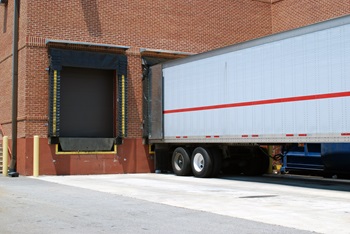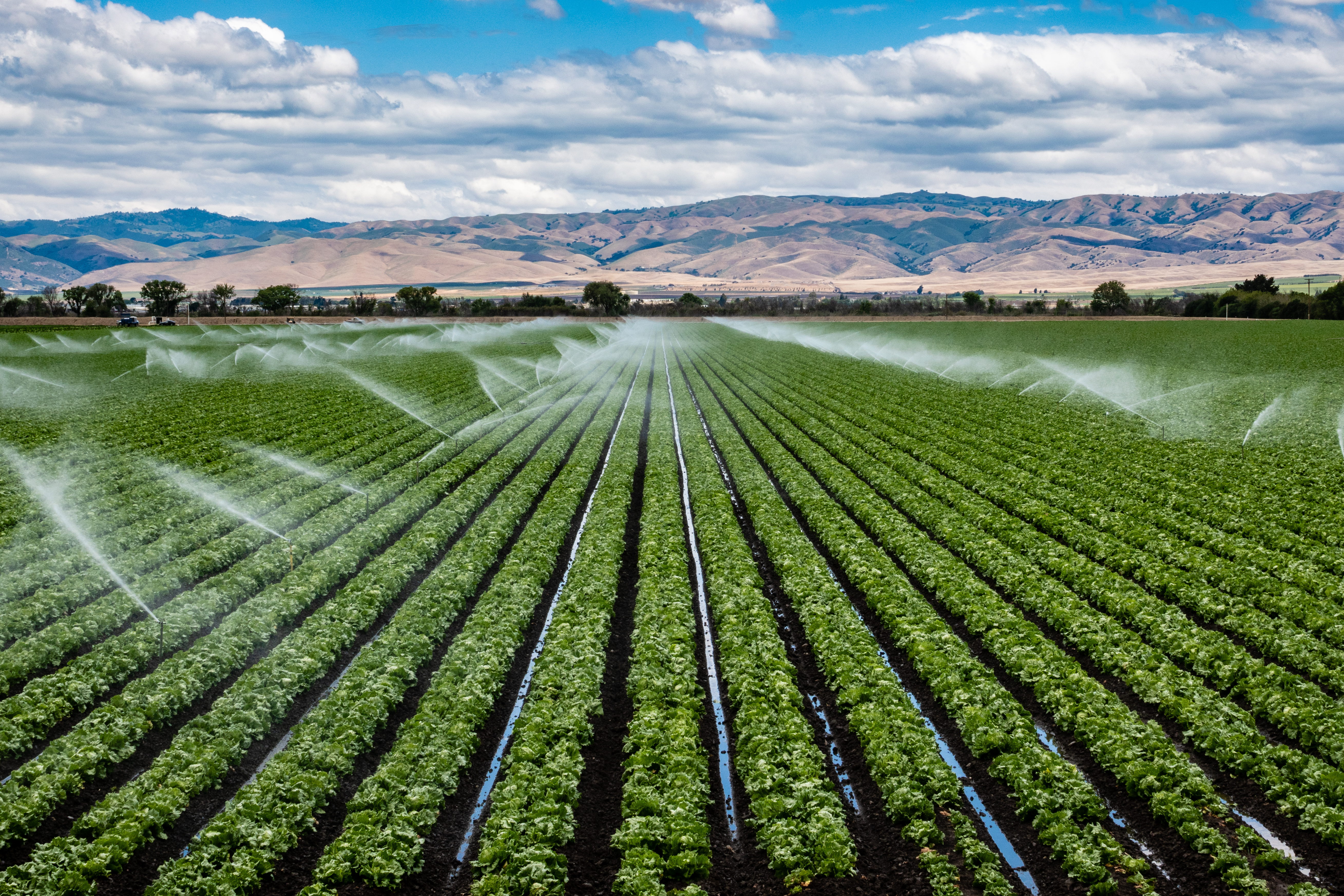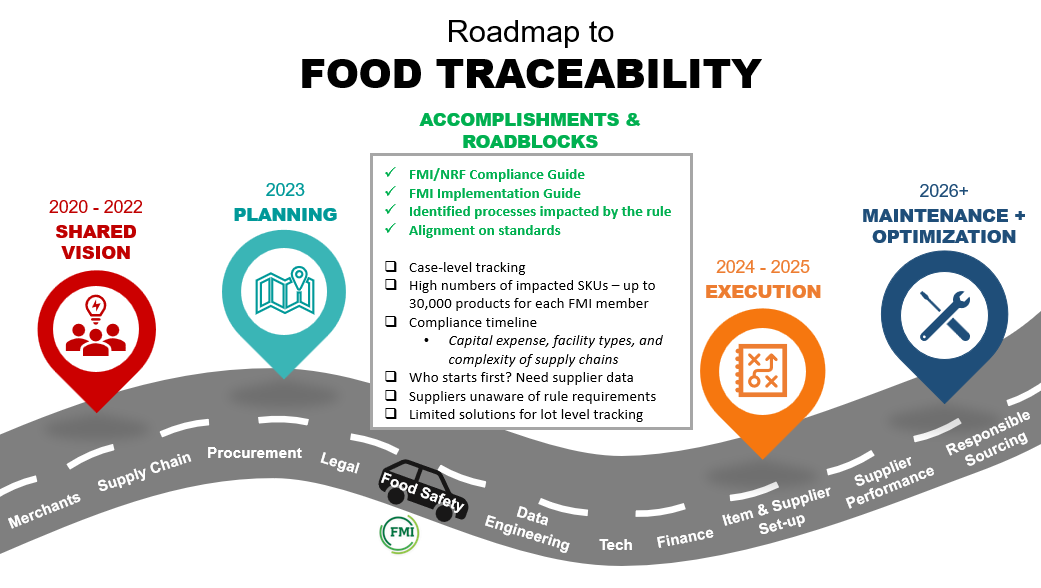By: Hilary Thesmar, PhD, RD, CFS, Chief Food and Product Safety Officer and Vice President, Food Safety Programs
 The April 6, 2017 compliance date for the FSMA Sanitary Transportation of Human and Animal Foods Rule is only a few days way, are you ready?
The April 6, 2017 compliance date for the FSMA Sanitary Transportation of Human and Animal Foods Rule is only a few days way, are you ready?
The final Sanitary Transportation rule published in the Federal Register on April 6, 2016 and is one of the seven major FSMA rules designed to create a risk-based framework for food safety. Specifically, the goal of these new requirements under the Sanitary Transportation rule is to ensure that transportation practices of human and animal food by motor vehicle and rail vehicle do not create food safety risks.
The Sanitary Transpiration of Food Rule applies to shippers, loaders, carriers and receivers engaged in transportation operations, both intrastate and interstate, of human or animal food by rail or road vehicles. The rule focuses on avoiding contamination or preventing food from becoming unsafe by establishing written procedures that address vehicle sanitation, temperature control, and communication about previous loads. Additionally, there is a training requirement for carriers. The training must provide an awareness of potential food safety problems that may occur during food transportation, basic sanitary transportation practices to address those potential problems, and the responsibilities of the carrier. The FDA has said they are developing an online course to meet the training requirement and have indicated that the training would be available before the first compliance dates go into effect. However, with the first compliance date approaching, FDA has yet to make this training available.
On April 6, 2017, FDA published three waivers for businesses whose transportation operations are subject to other regulatory controls, including:
- Businesses inspected under the National Conference on Interstate Milk Shipments’ Grade “A” Milk Safety Program when transporting Grade “A” milk and milk products.
- Food establishments authorized by the regulatory authority to operate when engaged as receivers, or as shippers and carriers in operations in which food is delivered directly to consumers, or to other locations the establishments or affiliates operate that serve or sell food directly to consumers. (Examples include restaurants, supermarkets and home grocery delivery services.)
- Businesses transporting molluscan shellfish that are certified/inspected under the Interstate Shellfish Sanitation Conference’s (ISSC) National Shellfish Sanitation Program (NSSP).
Below are some resources to help you gain a better understanding of the requirements and get you where you need to be with compliance.
- FSMA Sanitary Transportation Rule: 5 Ways to Simplify Compliance
March 7, 2017 Webinar hosted by ReposiTrak.
-
FSMA Finalizes Sanitary Transportation: Impact of Key Changes
-
April 26, 2016 Webinar hosted by ReposiTrak.
- Global Cold Chain Alliance Sanitary Transportation of Food Compliance Guide
The Refrigerated Transportation Best Practices Guide assists shippers in understanding and preparing qualified – and attainable – food safety plans and transportation requirements, and offering carriers, loaders and receivers a clearer understanding of expected practices so that they can be prepared to deliver.
- FDA webpage on the Final Sanitary Transportation of Human and Animal Food
If you have questions or would like assistance, please feel free to contact FMI at foodsafetyteam@fmi.org or (202) 220-0661.
For more FSMA resources, visit FMI’s FSMA Resource Center.


 Industry Topics address your specific area of expertise with resources, reports, events and more.
Industry Topics address your specific area of expertise with resources, reports, events and more.
 Our Research covers consumer behavior and retail operation benchmarks so you can make informed business decisions.
Our Research covers consumer behavior and retail operation benchmarks so you can make informed business decisions.
 Events and Education including online and in-person help you advance your food retail career.
Events and Education including online and in-person help you advance your food retail career.
 Food Safety training, resources and guidance that help you create a company food safety culture.
Food Safety training, resources and guidance that help you create a company food safety culture.
 Government Affairs work — federal and state — on the latest food industry policy, regulatory and legislative issues.
Government Affairs work — federal and state — on the latest food industry policy, regulatory and legislative issues.
 Get Involved. From industry awards to newsletters and committees, these resources help you take advantage of your membership.
Get Involved. From industry awards to newsletters and committees, these resources help you take advantage of your membership.
 Best practices, guidance documents, infographics, signage and more for the food industry on the COVID-19 pandemic.
Best practices, guidance documents, infographics, signage and more for the food industry on the COVID-19 pandemic.
